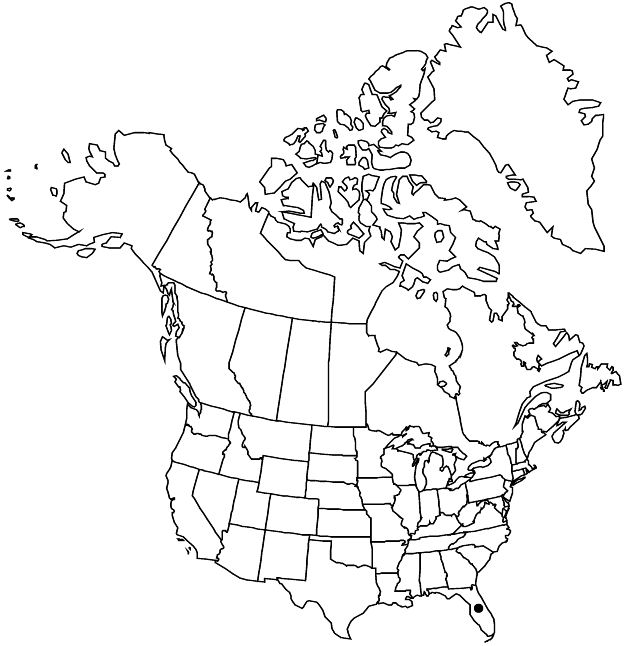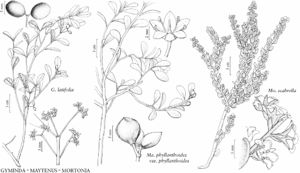Difference between revisions of "Maytenus phyllanthoides var. phyllanthoides"
FNA>Volume Importer |
imported>Volume Importer |
||
| (5 intermediate revisions by 2 users not shown) | |||
| Line 1: | Line 1: | ||
{{Treatment/ID | {{Treatment/ID | ||
|accepted_name=Maytenus phyllanthoides var. phyllanthoides | |accepted_name=Maytenus phyllanthoides var. phyllanthoides | ||
| − | |accepted_authority= | + | |accepted_authority= |
|publications= | |publications= | ||
|common_names=Florida mayten | |common_names=Florida mayten | ||
|special_status={{Treatment/ID/Special_status | |special_status={{Treatment/ID/Special_status | ||
|code=F | |code=F | ||
| − | |label= | + | |label=Illustrated |
}} | }} | ||
|basionyms= | |basionyms= | ||
| Line 33: | Line 33: | ||
-->{{#Taxon: | -->{{#Taxon: | ||
name=Maytenus phyllanthoides var. phyllanthoides | name=Maytenus phyllanthoides var. phyllanthoides | ||
| − | + | |authority= | |
| − | |authority= | ||
|rank=variety | |rank=variety | ||
|parent rank=species | |parent rank=species | ||
| Line 47: | Line 46: | ||
|publication title= | |publication title= | ||
|publication year= | |publication year= | ||
| − | |special status= | + | |special status=Illustrated |
| − | |source xml=https:// | + | |source xml=https://bitbucket.org/aafc-mbb/fna-data-curation/src/2e0870ddd59836b60bcf96646a41e87ea5a5943a/coarse_grained_fna_xml/V12/V12_56.xml |
|genus=Maytenus | |genus=Maytenus | ||
|species=Maytenus phyllanthoides | |species=Maytenus phyllanthoides | ||
Latest revision as of 19:16, 5 November 2020
Shrubs or trees 1–7 m. Stems erect to spreading. Leaves: petiole 2–6 mm; blade obovate, 1.5–5(–6) × 1–2.5(–3.5) cm, base cuneate, margins entire, sometimes wavy, apex rounded.
Phenology: Flowering early spring–summer; fruiting summer–winter.
Habitat: Hammocks, dunes, edges of mangrove forests.
Elevation: 0–10 m.
Distribution

Fla., Mexico, West Indies (Bahamas, Cuba).
Discussion
In the flora area, var. phyllanthoides occurs along the Gulf coast of peninsular Florida from Levy County south and on the Atlantic coast in Miami-Dade County and the Keys. The leaves yield a gum that has been used as a substitute for gutta-percha, a rubberlike substance derived from Palaquium Blanco spp. (Sapotaceae) of southeast Asia and used in dentistry and historically for electrical insulation and golf balls.
Selected References
None.
Lower Taxa
None.
